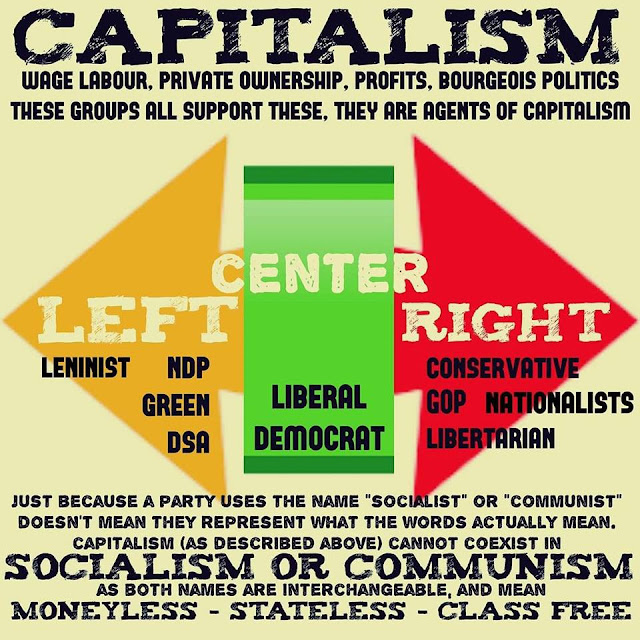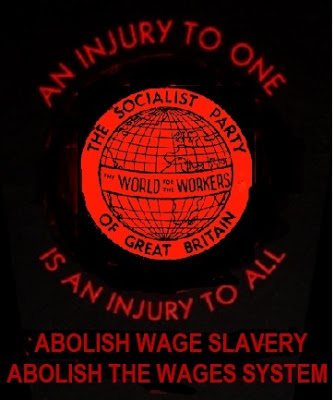If socialism is assumed to be no more than social reforms or government regulations shows that the worker is not yet ready for socialism.
Socialism is not around the corner. To pretend that it is or to ignore the immense tasks that yet lie before socialists and the working class would be a disservice to socialism,
We scorn the easy road that might lead to large support and popularity. We have been in the business of making socialists for no other reason than that a majority wanting socialism is the first condition for its establishment.
Over years events have provided innumerable tests of the soundness of our Object and Declaration of Principles. Nothing has deflected us from our purpose and path or diverted us to the pursuit of any secondary purpose or of any other object than socialism.
We have tenaciously ploughed our way unshaken by revolutions, civil wars and world wars. More than ever to-day we take our stand on the position that the economic and social problems of the world can be solved only by socialism; that workers everywhere have a common interest with each other that overrides all other interests.
There can be but one answer to these problems for the workers. There is no solution to any of them separately. The solution to any one of them is the solution which will sweep all of them away together. That solution is the one we have proffered at all times throughout our history as the remedy for the social and economic problems which confront the workers. That solution is not a new discovery. At all moments throughout our history, it has been our answer. It still is and will continue to be: It is SOCIALISM NOW
The reality of capitalism is that such problems are endemic to the system. They flow directly from its basis and in one form or another, they will endure for as long as capitalism lasts. The reformist case is that capitalism need not be abolished (although some reformists profess this to be their eventual, distant, objective) just yet because it can be modified so as to be acceptable to people. All the evidence destroys this myth and points to the conclusion that socialism cannot be delayed. It points to the conclusion that reformism is not only futile but reactionary, since it aims to postpone socialism when this, in fact, means the abandonment of the aim of social revolution and therefore the continuation of capitalism with all the problems which so concern the reformists.
The Socialist Party will not barter its support for any promise of reform. For, no matter whether these promises are made sincerely or not, we know that the immediate need of our class is emancipation, which can only be achieved through the establishment of socialism. Our interests are opposed to the interests of all sections of the master-class without distinction; whether bankers or industrialists, landlords or commercial magnates, all participate in the fruits of our enslavement. All will unite, in the last resort, in defence of the system by which they live.
For the party of the working class, one course alone is open, and that involves unceasing hostility to all parties, no matter what their plea, who lend their aid to the administration of the existing social order and thus contribute, consciously or otherwise, to its maintenance. Our object is its overthrow, and to us, political power is useless for any other purpose. With these facts clearly in mind, and conscious that economic development is our unshakable and inseparable ally, we call upon the workers of this country to muster under our banner.
Our case has stood the test of time and has been kept clear and forceful for all these years. But we are aware that progress towards socialism is desperately needed; we are not satisfied that the workers remain so wedded to capitalism, so susceptible to the specious propaganda for the social system which exploits and degrades them. If we look back, then, it is only to draw the lessons of the past and to apply them in the future. The years since 1904 have taught us of the need to refuse compromise, to stand for socialism and for that alone and to insist that the revolution is an immediate possibility; the working class can and must understand socialism and opt for it. That is the continuing task of socialists everywhere.
When that happens, the role of the Socialist Party is at an end. A class-free, united society will have no need for any expression of class-divided society; there will be no privileges, no coercive machinery, no medium through which ownership on the one hand, and denial of access on the other, are expressed. Neither will there be political parties, which exist as proponents of class interests. The socialist parties alone represent the interests of the working class; when that class is abolished with the establishment of socialism the socialist parties, along with all others, will cease to exist.







